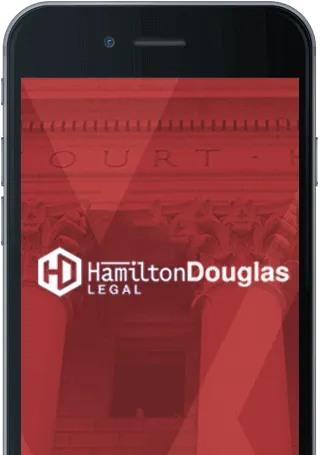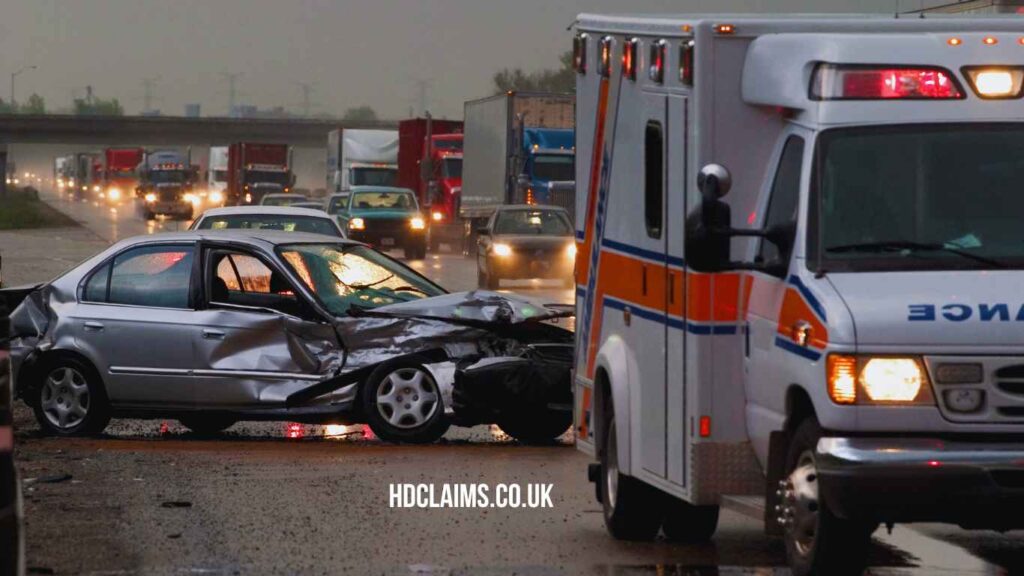
Sarah John's
Legal Writer
When a healthcare professional’s conduct falls below the accepted standard and causes harm, can lead to severe consequences. In Scotland, if you believe you or a loved one have been a victim of clinical negligence, you might consider seeking legal aid to support your claim.
Legal aid is a system designed to ensure everyone has access to justice, regardless of their financial situation. It can provide the necessary funding to individuals who might otherwise not be able to afford to hire Medical Negligence Solicitors In Scotland. With legal aid, individuals can pursue a claim for clinical negligence without worrying about upfront legal costs.
Table of Contents

Get In Touch With Your Local Office:
With local knowledge and a national network of experts, we have the experience you can count on.
What Is The Process For Claiming Legal Aid?
Applying for legal aid in Scotland involves several steps, and they are as follows:
1. Understanding Legal Aid in Scotland:
Legal aid in Scotland is a vital resource that can help people who need to make a claim but may not have the money to do so. The Scottish Legal Aid Board is in charge of this system, which helps those in need to pay for their legal representation. This ensures that everyone has fair access to justice, regardless of their financial situation.
Definition and Purpose of Legal Aid:
Legal aid is publicly-funded assistance that pays for legal advice, mediation, and representation in court or panel. Legal aid aims to ensure that no one is denied access to justice because they can’t afford it. It’s a way to make sure that everyone, rich or poor, has a chance to have their case heard.
Eligibility Criteria for Legal Aid in Medical Negligence Cases:
In medical negligence cases, the Scottish Legal Aid Board needs to be sure that the claim has a good chance of success. They also look at how much money the individual has.
To get legal aid funding, the person making the claim must pass a test to see if they can pay for it on their own. This evaluation takes income, savings, and other assets into account. It’s a means-tested system meant to help those who need it the most.
Regarding the case itself, the claim must have a certain seriousness and complexity to be eligible for legal aid. This is often the case with medical negligence, given the technical and legal complexities involved.
You should discuss with your solicitor whether you are eligible for legal aid; they will help you determine whether you qualify and, if you are, help you complete the application.
2. Initiating the Legal Aid Application:
You’ll need to follow a sequence of steps to apply for legal aid in Scotland. The first step is to find a lawyer who can take on cases for legal aid. Once you’ve found a good lawyer, they can help you through the application process and ensure all the necessary paperwork is complete and submitted correctly.
Engaging with a Law Firm:
To apply for legal aid, you must work with a law firm registered with the Scottish Legal Aid Board. These companies have the knowledge and permission to help you through the process of getting legal aid. They can judge how strong your case is, help you complete the forms, and represent you if your application is accepted.
Free Initial Consultation:
In Scotland, many law firms offer a free initial consultation. This is your chance to discuss your case with a lawyer and the possibility of getting legal aid. They can give you some basic advice and help you determine what to do next. This consultation is usually free, so it’s a great way to explore your options without spending money. Even if you aren’t sure if you qualify for legal aid, a free Initial consultation can help clarify the situation.
3. Preparing the Legal Aid Application:
Preparing your application for legal aid requires careful attention to detail. Usually, your lawyer will help you through this process and ensure that your application is as strong as possible. Key parts of this preparation are getting evidence to back up your claim and completing the legal aid application form correctly and comprehensively.
Gathering Evidence:
Collecting evidence is an integral part of preparing to apply for legal aid. For a claim of medical negligence, this could mean getting medical records, reports from specialists, or comments from witnesses. This proof is very important for showing that your clinical negligence claim has a good chance of success. A lawyer can tell you what kind of proof to gather, which will help you build a strong case that meets the Scottish Legal Aid Board standards.
Completing the Legal Aid Application Form:
The application form for legal aid is a key document that needs to be completed. It asks for information about your finances and the case itself; it’s important to be accurate and honest here. Any mistakes or missing information could make your application take longer or even result in rejection. Your lawyer can help you complete this form, ensuring it is completed correctly and has all the necessary information.
4. Submitting the Legal Aid Application:
Once the application for legal aid has been completed and all the necessary evidence has been gathered, it’s time to apply. This step is very important because it starts the official process of seeking legal aid from the Scottish Legal Aid Board.
Lodging the Application with the Scottish Legal Aid Board (SLAB):
The completed application for legal aid and all supporting documents are sent to the Scottish Legal Aid Board. Most of the time, your lawyer will take care of this for you. SLAB is the government legal aid agency that makes the final decision on all requests for legal aid. They carefully review each application, judging the claim’s validity and the applicant’s financial situation.
Waiting for Approval:
When you send your application to the SLAB, you usually have to wait for some time while your application is being reviewed. This waiting period can be based on several things, such as how complicated your case is. Be patient during this time; If your application is approved, you’ll be notified, and your legal solicitor fees will be paid, but you may have to pay a portion of this fee, depending on your financial situation. If your application is denied, your solicitor can help you determine what other options you may have other than legal aid.
5. Approval and Legal Representation:
Once the Scottish Legal Aid Board has accepted your request for legal aid, you can move on with your case. This means talking to the lawyer who has been helping you till now and getting ready for the legal processes involved in your medical negligence claim.
Notification of approval:
If your request for legal aid is accepted, the Scottish Legal Aid Board will notify you. This notice will tell you what costs are covered and whether or not you’ll have to pay a portion of the costs based on your income. It’s a key milestone in your case because it means you have the financial resources to move forward with your claim.
Appointed Solicitor:
If your application is accepted, the lawyer who helped you with it will usually be the one who represents you. This lawyer, now paid for by legal aid, will prepare your case, advise you on any necessary steps, and defend your interests in court or negotiations. They will be your main point of contact throughout the process and will work to get you the best result possible.
6. Commencing the Medical Negligence Claim:
Now that you have legal help and a lawyer, it’s time to start your claim for medical negligence. This part of the process entails carefully putting together your case and participating in negotiations with the person or group you’re blaming for the negligence.
Case Preparation:
Case preparation is a detailed process that involves an in-depth examination of your case. Your lawyer knows how to prove a medical negligence case; they will review all the evidence, do additional research if necessary, and build a strong case to support your compensation claim.
Your lawyer will examine how the negligence happened, who was at fault, and how it changed your life. They might also seek advice from medical experts to better understand the medical issues involved.
This stage also involves preparing for potential court proceedings. This can include getting comments from witnesses, gathering expert reports, and working on a court strategy. All of these things will be taken care of by your lawyer, who will ensure your case is as strong as possible before it is presented.
Negotiations and Settlement:
Once your case is ready, negotiations are often the next step. Most of the medical negligence claims can be settled without going to court. In order to reach a settlement that fairly compensates you for the harm you’ve experienced, your solicitor will negotiate with the other party.
During negotiations, your lawyer will defend your best interests and try to find a solution that acknowledges the negligence you’ve experienced and its impact on your life.
If the negotiations lead to a settlement offer, your lawyer will discuss it with you about it and give you advice on whether it’s a fair amount according to the situation. It’s important to remember that it’s your choice whether or not to accept a settlement offer. Your lawyer is there to help and advise you, but the final choice is always up to you. If you can’t reach a deal through negotiations, your lawyer will get ready to go to court for you.
7. Going to Court (If Necessary):
If negotiations do not lead to a satisfactory settlement, taking your medical negligence claim to court may be necessary.
Court Proceedings:
In court proceedings, your case will be presented before a judge. Your solicitor will present the evidence of negligence and its impact on your life; the opposing party will also present their case. This is a structured process; your solicitor will explain each stage to you so you know what to expect.
Sometimes, you may need to be present in court and present evidence in person. If necessary, your solicitor will help you prepare, ensuring you understand what questions you may be asked and how best to answer them.
Court Costs and Legal Aid Coverage:
Cost is a major concern for many people considering going to court. However, most of the costs of going to court are covered with legal aid. This includes the cost of your lawyer and, usually, other related costs. However, if you are asked to make a financial contribution because of your situation, your solicitor will explain this to you.
Which clinical negligence cases qualify for Legal Aid?
In Scotland, legal aid is available for various kinds of clinical negligence cases. The Scottish Legal Aid Board (SLAB) examines each case individually and decides which is eligible.
Clinical negligence cases that often qualify for legal aid are:
Birth injury claims:
These include those in which the mother or child suffered harm because of someone else’s negligence during childbirth, such as medical negligence claims for cerebral palsy or Erb’s Palsy.
Misdiagnosis or delayed diagnosis:
In these cases, a medical professional failed to correctly diagnose a condition or took a long time to do so, further harming or deteriorating the patient’s health.
Surgical errors:
Cases in which a mistake is made during surgery, resulting in injury or worsening of the patient’s condition, such as Knee Injury Claims related to improper surgical procedures.
Negligent care or treatment:
This category includes situations in which the level of care given was below what could be expected, causing harm or injury.
Prescription errors:
When the wrong medication is prescribed, or the correct medication is administered incorrectly.
DEDICATED CLAIMS ADVISORS
Our dedicated claims advisors are always available to offer free legal advice.
100% NO WIN NO FEE CLAIMS
All our claims are processed on a No Win No Fee basis; you pay nothing if you lose.

MILLIONS SECURED IN DAMAGES
To date, we have secured millions in damages.
THOUSANDS OF SATISFIED CLIENTS
To date, we have helped thousands of clients recover compensation and continue to do so.
How can I fund my case if I do not qualify for Legal Aid?
If you find out, you are not eligible for legal aid, don’t worry. You might be able to pay for your medical negligence claim in Scotland in other ways.
One common way is through a Conditional Fee Agreement (CFA), also called a “no win, no fee” agreement. Your lawyer agrees to take on your case without charging you upfront. If your claim is successful, they will take a cut of the compensation you get as their fee; you won’t have to pay legal fees if they don’t win.
Another option is legal expenses insurance; this is sometimes included in home or car insurance, so check to see if you already have a policy that could cover the costs of your situation. This kind of insurance can pay for your legal costs, whether you win or lose.
Finally, you might consider paying for your legal services yourself. You could pay for your lawyer’s fees yourself. The term for this is “private funding.” The cost will depend on your case and how much the lawyer charges.
You should discuss these options with a lawyer before deciding which is best for you. They can help you understand the pros and cons of each choice and give you advice based on your situation.

Can’t Work Due To Illness Or Injury?
Use our free online claim check tool and find out in minutes if you have a claim.
Which solicitor should I use for my Legal Aid case?
Choosing the right lawyer for your legal aid case is very important. You need someone who knows clinical negligence law and has experience handling legally funded personal injury claims in Scotland.
Look for a lawyer registered with the Scottish Legal Aid Board (SLAB). This makes sure they can apply for and handle cases that are funded by legal aid. Also, it’s a good idea to find a lawyer specialising in clinical negligence because they’ll know everything there is to know about these cases.
Another important thing to think about is how the lawyer works with clients. They should be able to clearly explain how the law works, answer your questions, and keep you updated on your case. You can often get an idea of this from the first meeting or reviews from people who have used the service.
Lastly, look at the lawyer’s track record to see if they have dealt with similar cases successfully in the past. A good track record can give you confidence in their ability to handle your case well.
Remember that it’s fine to look around and talk to a few different solicitors before making a choice. You want to be sure that the lawyer you choose is the best for you and your case.
Medical Negligence Legal Aid – Free Advice
It’s normal to have a lot of questions if you think you’ve been a victim of medical negligence. You might wonder what your rights are, whether you have a case, and how to pay for your claim. Good news – you can find answers and advice, usually for free, even in Scotland.
You might be able to get legal help for your claim of medical negligence. It’s a form of financial aid that helps people who can’t afford to pay for legal costs. However, how can you tell if you are eligible for this? You could speak to a lawyer for free advice on what to do. Many law firms offer free initial consultations where you can talk about your situation, and they can explain your options.
During this meeting, the lawyer can tell you about the basics of legal aid, such as who can get it and how to apply. They can also look at your case and tell you whether you should get legal aid.
You can also research on your own before you call a lawyer. The Scottish Legal Aid Board (SLAB) website has a lot of useful information about legal aid, including a helpful guide on medical negligence cases.
Each case of medical negligence is different, so it’s important to get the right advice. Talking to a lawyer can help you understand your options and figure out what to do next. Don’t let worries about how much it will cost stop you; there is help, and most of the time, it is free.
Easy Ways To Get In Touch
We are here to help. Give us a call, request a call back or use our free claim check tool to get in touch with our friendly legal team. With local knowledge and a national network of experts, we have the experience you can count on.






